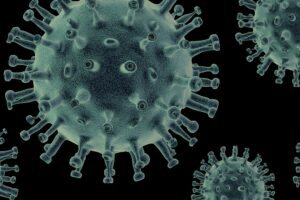
Despite health warnings from a number of health authorities, raw milk, or unpasteurised milk, has been gaining popularity. However, this trend is especially troubling in light of the recent bird flu (H5N1) outbreak among dairy cows in the United States, which poses additional risks to those consuming unpasteurised milk.
Both the U.S. Food and Drug Administration (FDA) and the Centers for Disease Control and Prevention (CDC) have repeatedly warned that raw milk is among the “riskiest” foods due to the potential presence of harmful pathogens like salmonella, E. coli, listeria, and campylobacter, many of which are associated with bird flu.
These pathogens can lead to severe health issues, including food poisoning, kidney failure, and even death. Between 1998 and 2018, the CDC recorded over 200 outbreaks linked to raw milk, resulting in more than 2,600 illnesses and 225 hospitalisations.
In a recent publication, the FDA noted: “These germs can seriously injure the health of anyone who drinks raw milk or eats products made from raw milk.”
In the US, the sale of raw milk is legal in at least a dozen states, though about a third of these states have specific regulations. For instance, in Arizona, dairies must be licensed by the Arizona Department of Agriculture, meet Grade A standards, and clearly label all raw milk containers with a warning about potential health risks.
The raw milk movement has garnered support from high-profile figures like Gwyneth Paltrow and Robert F. Kennedy, Jr. They tout its nutritional benefits, including vitamins, minerals, proteins, fats, and enzymes, arguing that pasteurization can denature these components.
Although only a small percentage of the population consumes unpasteurised milk (3.2%) and cheese (1.6%), these products are responsible for a disproportionately high number of foodborne illnesses compared to their pasteurised counterparts.
The CDC has noted that the germs in raw milk pose a particular threat to vulnerable groups, including those with weakened immune systems, children, older adults, and pregnant women. In fact, foodborne illnesses from raw milk are especially prevalent among children and teenagers.
As county and state fairs approach, extra caution is advised due to the potential for increased disease transmission. The risk isn’t just from direct contact with cows, but also from farm equipment and people coming from infected farms.
Farmers are working to control the bird flu outbreak, but you might notice fewer cows at these events as they take measures to protect their herds.



